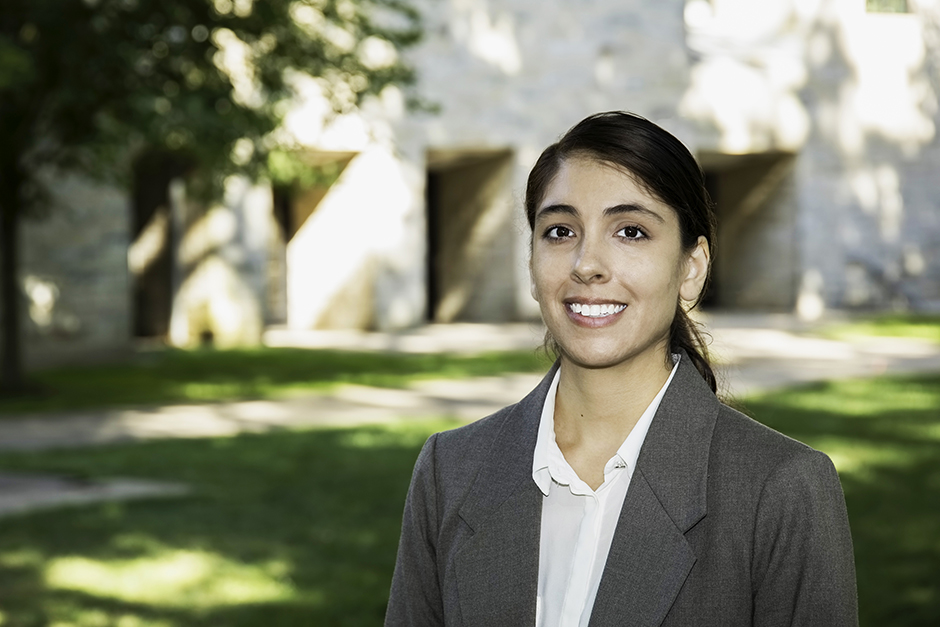This past academic year, University of Miami graduate student Samina Ali earned the Marilyn Yarbrough Dissertation Fellowship from Kenyon College for her dissertation, “Bad Women and the Politics of Recognition.” The fellowship allowed her the opportunity to teach at the small liberal arts school in Ohio, an experience she says gave her a boost in academic instruction within the classroom.
“It was such an amazing experience teaching at Kenyon,” says Ali, who is originally from New York. “I felt that my teaching greatly improved. At the University of Miami, I taught intro composition courses and was a teacher’s assistant for an English course, but I never fully taught a literature course at UM, so I was excited to craft my very own 200- and 400-level classes at Kenyon. I need to thank the English Department for helping me put those courses together, especially Dr. Donette Francis. I owe so much of my academic career to her and am so grateful to have her as an advisor.”
“Samina is tenacious and dogged in her pursuit of new knowledge,” says Donette Francis, associate professor and director of the American Studies Program. “She has already demonstrated her commitment to acquiring whatever tools necessary to undertake her innovative project, which requires texts and methodologies beyond literary studies.”
Ali’s dissertation studies how literature, ethnography, and popular media have represented Latinas and South Asian women in the U.S. as “brown” and threatening, especially when they practice Islam in a post-9/11 era. Ali says that the idea to pursue her dissertation started when she was doing ethnographic research.
“I was interested in thinking about the communities in cities like New York, Miami, and Detroit that were pushed together because of gentrification and socioeconomic issues,” she adds. “What I noticed, particularly in Latinx communities and South Asian communities in Queens, the Bronx, and Brooklyn, was that people were coming together and sharing cultural, spiritual and religious values.
“As I was collecting data, I found that Latina and South Asian women were being labeled negativity by their families for converting to Islam, and by other Muslims for not practicing enough of the faith, that’s when the image of ‘browness’ and Islam, in relation to women in a post 9-11 climate, came to mind and how those elements affected these women and their place in the world.”
Ali is now able to complete her research all thanks to her recent accomplishment—winning the prestigious Woodrow Wilson National Fellowship Foundation, which selects only 10 Ph.D. candidates as Woodrow Wilson Dissertation Fellows in Women’s Studies for 2019.
The award supports the final year of dissertation writing for doctoral students in the humanities and social sciences whose work addresses women’s and gendered issues in interdisciplinary and original ways. Ali will receive a $5,000 stipend to use towards research-related expenses.
“I applied to the Woodrow Wilson Fellowship because I wanted to explore what’s happening in Houston, Texas,” says Ali. “Right now, there’s huge Islamic community in Houston that is particularly for Latin American Muslins in the area, so with the fellowship funding I hope to travel to Texas to get a sense of what the culture is like there."
The Woodrow Wilson Women’s Studies Dissertation Fellowship has named nearly 600 Fellows who have accomplished significant research about women that crosses disciplinary, regional, or cultural boundaries. Past Fellows include a Pulitzer Prize winner, two MacArthur Fellows, numerous Guggenheim and Fulbright Fellows, and many others who have achieved significant distinctions.

